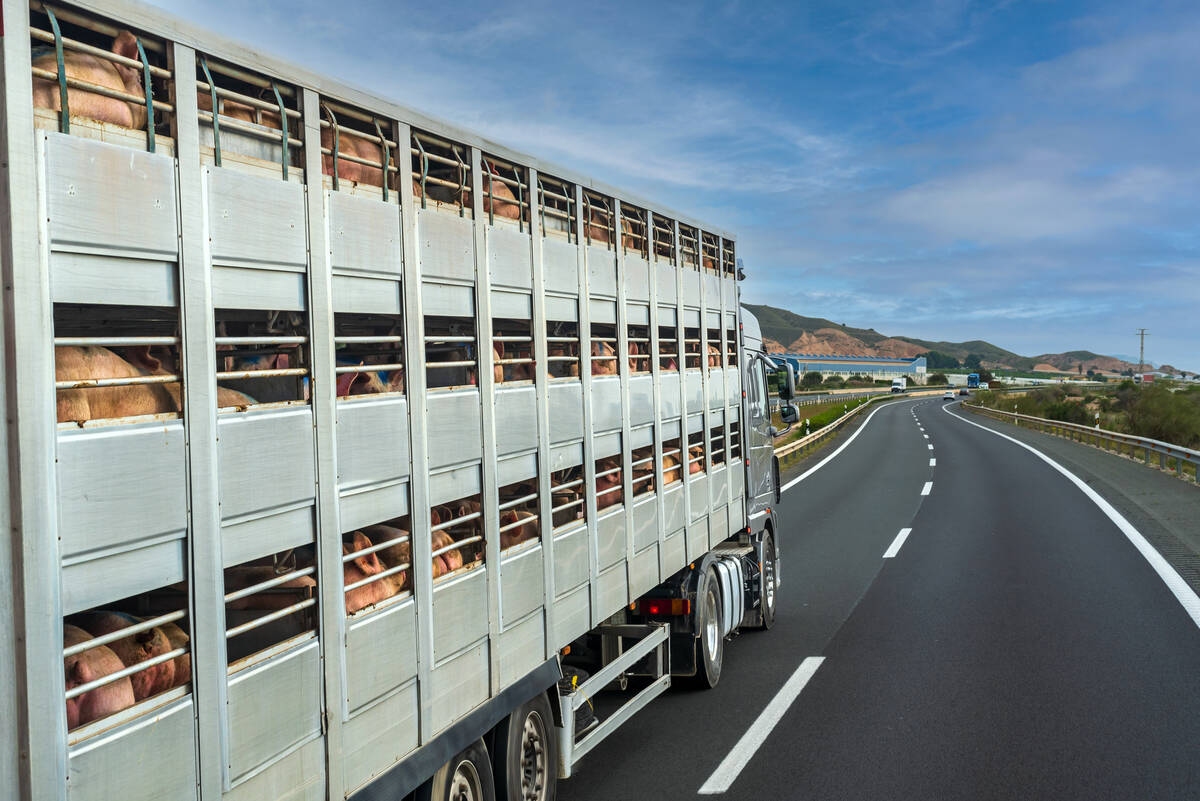A Toronto Liberal MP’s bill to expand animal anti-cruelty provisions in the Criminal Code is setting off alarm bells for agriculture organizations.
They’re closely scrutinizing Nathaniel Erskine-Smith’s private member’s bill because of its potential to sideswipe livestock farming.
The Beaches-East York MP has also been told by Bill Blair, the former Toronto police chief and current MP and parliamentary secretary for justice, that changes are needed to the bill to protect farmers, hunters and anglers.
“Canadians who enjoy hunting or fishing, or raise animals to be slaughtered for food are deeply concerned that these practices could be captured by these new offences, notwithstanding my friend’s reassurance,” Blair said in the Commons May 9, during second reading on the bill.
Read Also

Pig transport stress costs pork sector
Popular livestock trailer designs also increase pig stress during transportation, hitting at meat quality, animal welfare and farm profit, Agriculture and Agri-Food Canada researcher says
“Given the strong concerns that were expressed when a similar bill was debated, I think it would be most appropriate to broadly consult with Canadians across the country before pushing forward with any legislative amendments,” he added.
Criminal liability
While the bill is aimed at truly egregious abuse including shark finning and animal fighting, “a number of the proposed changes will drastically increase the likelihood of farmers facing criminal liability related to animal welfare,” says a briefing note prepared by the Canadian Federation of Agriculture.
“The current Criminal Code already accounts for intentional animal cruelty and the amendments proposed by C-246 do not improve the law in this respect nor does it include an exemption for generally accepted farming practices.”
Spokesmen for the Canadian Cattlemen’s Association and the Canadian Pork Council say the bill ignores all the work done by the National Farm Animal Care Council to develop livestock codes of practices for farmers. They spell out the humane animal treatment that must be practised in raising animals.
Erskine-Smith’s bill is expected to come up for debate again in the fall. Private member’s bills rarely become law. Blair said the bill may be overtaken by a government review of the Criminal Code.
Despite his support for tackling animal abuse, he criticized the bill for a lack of exemptions for specific legal activities such as ranching, hunting, fishing, trapping, and medical research.
“The bill may inadvertently create a conflict of law, making existing legally regulated activities illegal by the very nature of their existence,” Blair said.
“I believe that most Canadians would agree that animals deserve our protection apart from any property interests that may be attached to them. I am certainly not disagreeing with the need for strong legislative action to protect animals.”
Linkages
Blair added studies have confirmed that a person who abuses animals is much more likely to begin doing the same to people, and there is also research linking animal abusers to increased incidence of domestic violence.
“Animal cruelty is an important social issue that deserves a comprehensive legislative response,” Blair said. “It needs broad public consultation to allow us to get this right. The best way forward is in the review of the Criminal Code that will take place in the future.”
He said that while the bill has received applause for its proposal to outlaw shark finning, that the practice “is already banned in Canada through licensing conditions administered under the Fishery Relations, and any violation of shark harvesting licensing conditions is a chargeable offence under the Fisheries Act. As such, the proposed amendment to the regulations may create some confusion or redundancy.”
John Masswohl, director of government and international relations with the CCA, said from discussions with Erskine-Smith, it seems he is anti-farming but didn’t understand the protection provisions already in place.
Gary Story of the Pork Council said there are farm practices such as euthanasia of sick animals that could be misconstrued by outsiders.
Several Conservative MPs warned that while they understood the MP’s motives for bringing in the bill, they would vote against it because of the threat it posed to their rural constituents.


















